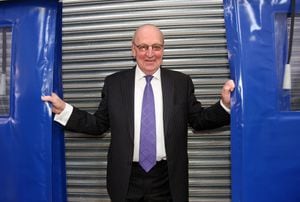SMI mobilises supplies to help in ‘unprecedented times’
Thermal insulation specialist Seymour Manufacturing International (SMI) is adapting its product range to help communities through the coronavirus crisis.

The Telford-based company, an award-winning supplier of thermal protection products including curtains, liners, pallet covers and temperature control zones, is working round the clock to respond to what it describes as "unprecedented times".
SMI is the inventor of Tempro, which remains unchallenged as the world’s thinnest and most thermally-efficient material of its kind.
Director Jill Seymour said: “This is unknown territory for us all, as we seek to adapt, assist and innovate to help keep the country on its feet.
“Sadly, we are already seeing temporary mortuaries being built around parts of the country in preparation for the predicted sharp rise in fatalities across the UK over the coming weeks.
“Our products have regularly been used to create temporary mortuary units, for use by hospitals, funeral directors and the military – and we are now having to increase our production.
“We have the capacity to produce complete temporary mortuary units, as well as thermal walls where there is a need to divide rooms. It’s about adapting our tried-and-tested product range for different purposes.
“The biggest challenge at present, however, is being able to source evaporators to keep pace with demand – so we are very keen to hear from any companies which may be able to collaborate with us.”
She added: “Supermarkets are also reporting a spiralling demand for chilled space, and this is another area we are currently assisting with. We are keen to help any business which needs extra capacity.”
SMI is using one of its most recent anti-bacterial innovations, Bio-Gard, to enrich its range of strip curtains, doors and thermal windows.
Bio-Gard clear strip curtains are intended to work in ambient areas, where bacteria can grow quickest, and have undergone nearly a decade of testing to comply with globally-recognised environmental standards.





